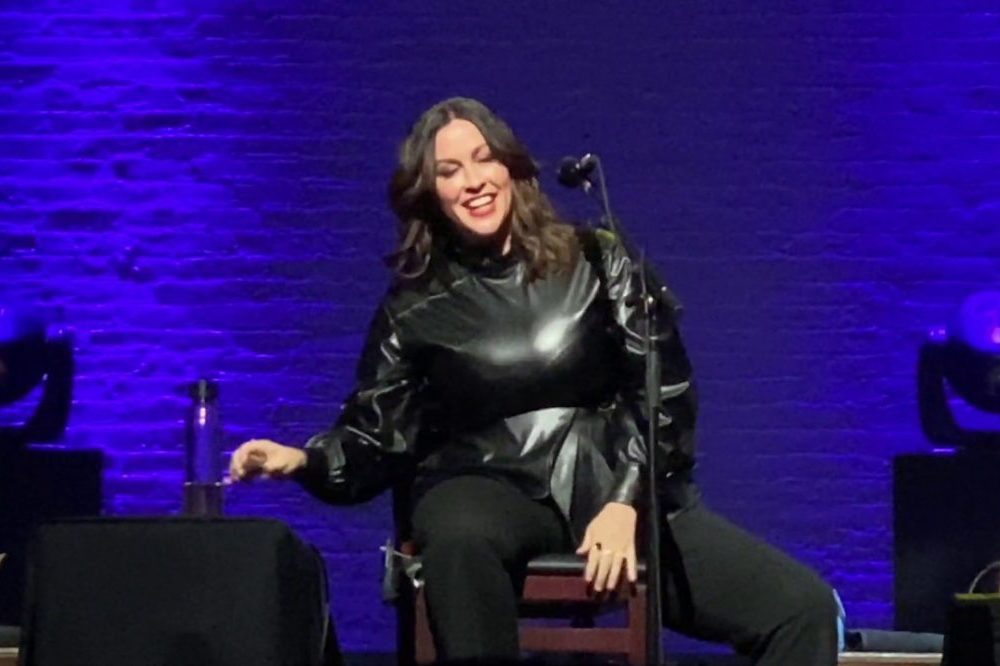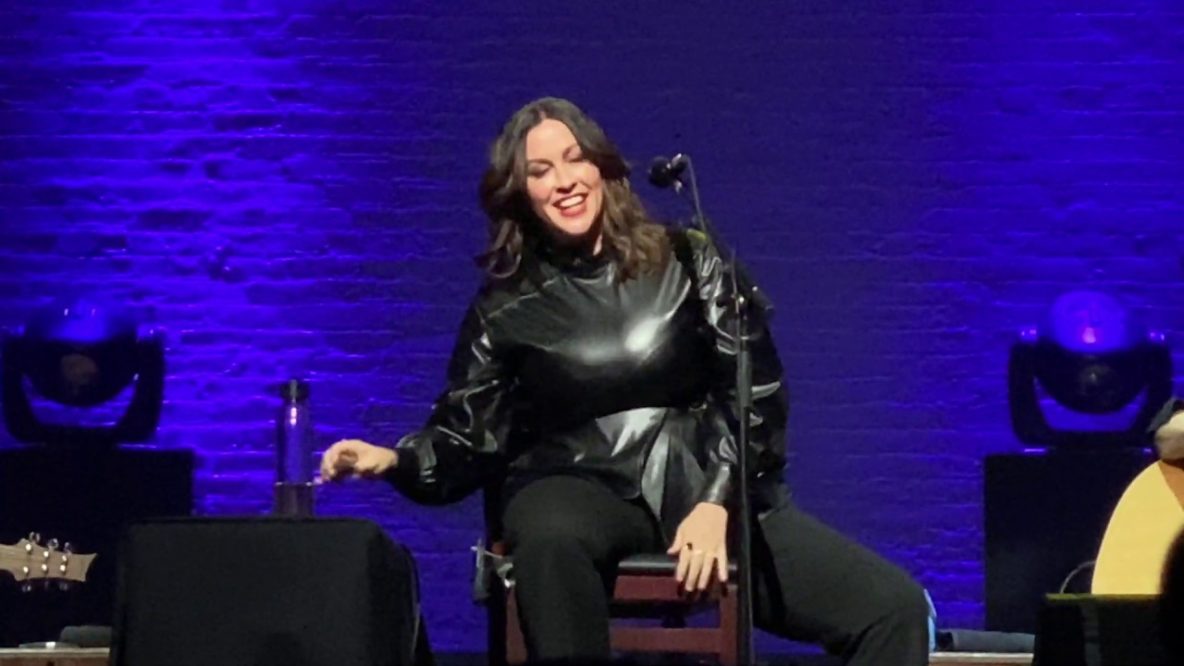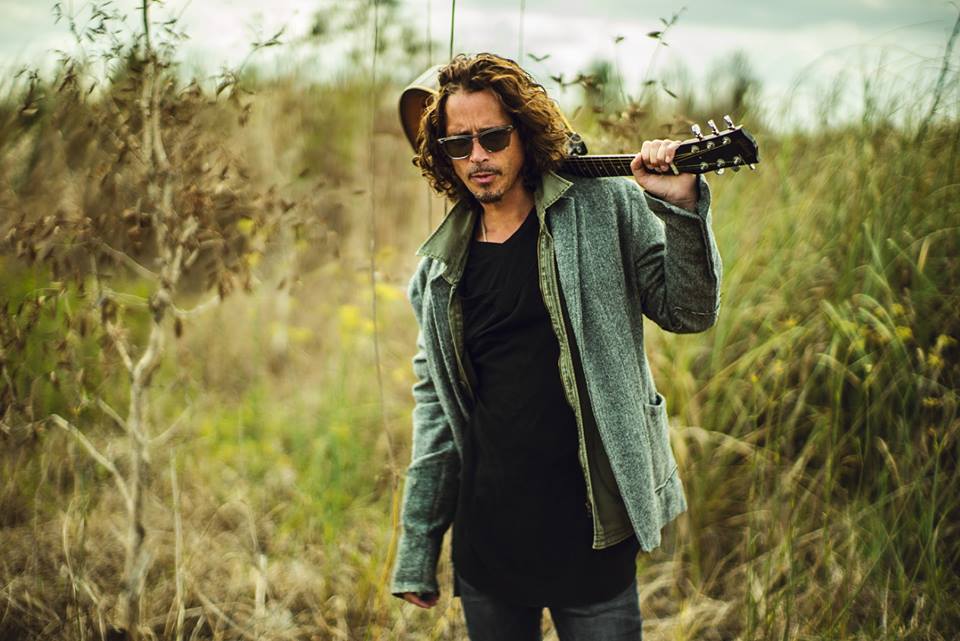

ONLY NOISE explores music fandom with poignant personal essays that examine the ways we’re shaped by our chosen soundtrack. This week, Tawny Lara details how a landmark ’90s album allowed her to feel a brewing childhood rage – and all the things she has to celebrate 25 years later.
November 30th, 2019 marked four years of my continuous sobriety. Each anniversary is celebrated with what I call a SoBerthday gift; past Soberthday gifts to myself have often been travel or some form of live entertainment. When I saw that Alanis Morissette was scheduled to perform a one-night-only show at the legendary Apollo Theater on December 2nd, I knew that was how I’d kick off my 4th year without booze. This special performance consisted of her singing Jagged Little Pill in its entirety to celebrate Jagged Little Pill: The Musical debuting on Broadway, as well as the 25th anniversary of the album itself.
I was nine years old when Jagged Little Pill took the world by storm. Mom and I had just relocated from Northern California to Waco, Texas. Dad stayed behind. They were never married. In fact, I never knew them as a couple. Dad was and is a heavy metal musician. For much of my young life, he was on tour. Going back and forth between Mom and Dad, between Concord and Alameda, then from Texas to California, took a toll on me – a toll I didn’t realize until I heard Jagged Little Pill and saw the video for “You Oughta Know.” It was the first time I heard a woman express what I now know as rage. Her pain was my pain.
It was the first time I saw a woman on TV who didn’t feel the need to present herself as society’s ever-evolving yet ever-unrealistic standard of “feminine.” Decades later I’d finally understand that expressing emotions – all emotions, including rage and anger – is absolutely feminine. But back then, nine-year-old me equated femininity with dresses and makeup and perfectly coiffed hair. Alanis’s demeanor and her sound were an act of rebellion.
Watching Alanis yell into the microphone in a gritty, sienna-toned video helped me learn that it’s okay to be angry and want to scream. I learned that there’s nothing wrong with expressing how I feel. Though I wasn’t old enough to experience a broken heart from romantic love as Alanis had, I had my own sadness from wishing my dad was around more. I missed my friends and family back in California. Starting over in third grade was hard. I didn’t understand why I had to move to a new city and home with my mom. Alanis and I both felt different types of heartache.
The range of emotions represented on Jagged Little Pill helped me identify my own emotions. The lyrics to “You Learn” served as my first self-help book. The simplicity of the music video for “Head Over Feet” captivated me. Even though nothing was happening, I was pulled in and couldn’t look away. Sometimes she’d look at the camera. Sometimes she’d sing with the song. But the whole time she was being authentically Alanis. I wanted to be like that.
As life progressed, I subconsciously learned to suppress my rage and other emotions as a way to cope. I didn’t know how to deal with trauma or anxiety or depression so I drank. And I drugged. And I drank some more. I suppressed said feelings until they erupted from me. I often cried when I drank. Or picked fights – both verbal and physical – with people I loved. I hid from my feelings so often that when I finally let myself feel them, it was too much to handle. So I drank even more until I got sober at age 29.
Jagged Little Pill aged with me. I went back to it when I wanted to feel comfortable. I’ve purchased it in nearly every available format: cassette, CD, mp3, iTunes download, and now stream it on Spotify. This album has been in my pocket (pun intended) for the last 25 years.
At the Apollo, she mentioned that she wrote the album when she was 19 years old. Though I knew the album was turning 25 and that she was now 45, it hadn’t occurred to me to do the math to see how old she was when she literally changed the world. I was in awe of the fact that a teenager wrote an album that spoke to people of all ages, races, sexualities, and genders. How can one album inspire nine-year-old me to connect with the rage I didn’t know I felt while simultaneously inspiring my 34-year-old aunt to finally get a long-overdue divorce? How can that same album still stand to the test of time a quarter of a century later to evolve into a Broadway musical? Because… Alanis.
Her show at The Apollo had campfire sing-along vibes. She sang Jagged Little Pill all the way through, plus “Thank U,” “Uninvited,” and a few new tracks. The sold-out crowd in the 1,500 seat theater sang every single word with her. A steady pool of water collected in my tear ducts throughout the duration of the two-hour show. Being in the same room as the woman who had such a significant impact on my life, on my emotions, was overwhelming. Again, she gave me permission to feel.
Sobriety is like being that nine year girl who just heard “You Oughta Know” for the first time: feelings are brand new again. I can no longer hide from sadness or anger or rage by abusing substances. I have to let myself feel. It’s challenging and uncomfortable, but so much growth comes out of it. Finding ways to process emotions in a healthy way is still a work in progress, but like Alanis tells us: we live, we learn.


